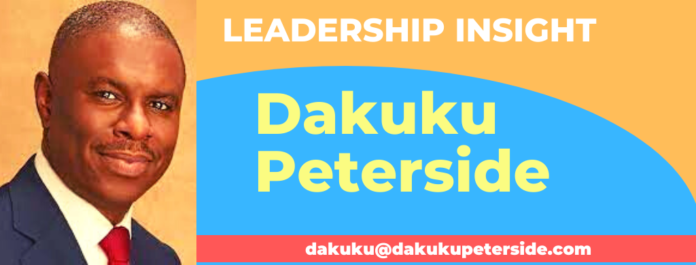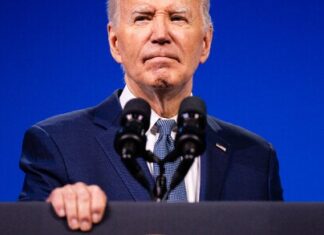Nigeria and the illusion of good governance
Good governance is universally acknowledged as a critical factor in the progress and development of any nation. In Nigeria, both the elite and the common people share this profound understanding of governance’s impact on the country’s trajectory. However, despite this shared understanding, these groups have a significant divide in their conception of what constitutes “good governance.” For the masses, good governance is primarily about tangible improvements in living conditions such as access to necessities, healthcare, education, and security.
The elite, however, view good governance through a broader lens, encompassing systematic approaches to resolving public policy challenges. Meanwhile, technocrats and academics emphasize key principles like participation, transparency, accountability, responsiveness, equity, effectiveness, and inclusivity as the hallmarks of good governance. Despite these varied perspectives, there is a consensus across all sectors that good governance is sorely lacking in Nigeria.
This column explores the reasons behind Nigeria’s persistent struggle with good governance, even after 63 years of independence and 25 years of representative democracy. The question arises: why, despite numerous opportunities for reform and change, does good governance remain elusive? To find an answer, we might consider Joseph de Maistre’s assertion that “every society gets the kind of leadership it deserves,” or Jimmy Carter’s observation that “a government is as good as its people.” However, I argue that the root causes lie deeper than these philosophical reflections. Corruption, underdevelopment, lack of political accountability, misuse of power, insecurity, and nepotism are not the root causes but symptoms of a broader deficit in good governance.
To explore this issue further, I engaged in informal discussions with ten members of Nigeria’s elite circle. Several recurring themes emerged from these conversations, offering insight into why good governance remains so elusive in Nigeria despite regular elections and changes in leadership.
One of the fundamental reasons for Nigeria’s governance challenges is the high rate of illiteracy, which is fundamentally incompatible with the demands of a functional democracy. Democracy relies on an informed citizenry that can actively participate in governance, demand accountability, and advocate for their rights. However, in Nigeria, high illiteracy levels have created a populace that cannot effectively participate in the process leading to or demand good governance. This situation has allowed the elite to maintain power with minimal resistance, perpetuating a cycle of poor governance. Without an educated and informed electorate, the necessary pressure for good governance remains absent.
Illiteracy not only weakens the citizenry’s ability to hold leaders accountable but also makes them vulnerable to manipulation by unscrupulous politicians. In many cases, illiterate voters are swayed by short-term incentives, such as cash handouts or promises of immediate benefits, rather than assessing the long-term implications of their choices. This dynamic perpetuates a cycle of poor governance, as leaders who are elected based on populist appeals rather than merit are less likely to prioritize the common good once in office.
READ ALSO: Some cautionary thoughts about reforming Nigeria’s judiciary
Still on the Utomi, Amosun rhumba
Another significant factor contributing to Nigeria’s governance challenges is the weakness of civil society. A robust civil society is essential for fostering participatory democracy, holding leaders accountable, and ensuring that governance serves the public interest. Unfortunately, Nigeria’s civil society remains fragmented and largely ineffective. High illiteracy, economic hardship, and a lack of civic consciousness exacerbate this weakness.
Historical evidence suggests that strong civil societies are correlated with better governance outcomes. For instance, countries like China and Japan experienced significant improvements in governance following periods of strong civil society engagement. China was post Chairman Mao, during the reign of Dieng Xiaoiong and Japan under Junichiro Koizumi. In contrast, Nigeria’s weak civil society continues to contribute to the persistence of poor governance.
The limitations of civil society in Nigeria are partly due to the country’s socio-economic challenges, including poverty, unemployment, and inequality. These issues have made it difficult for many citizens to engage in civil society activities, as they are preoccupied with meeting their basic needs. Additionally, the government’s often hostile stance towards civil society, including restrictive regulations and harassment of activists, has further weakened the sector’s ability to influence governance positively.
A robust civil society is essential for fostering good governance, as it provides a platform for citizens to voice their concerns, advocate for change, and hold leaders accountable. In countries where civil society is strong, such as in many Western democracies, there is often a higher level of political accountability and better governance outcomes. In contrast, Nigeria’s weak civil society has struggled to mobilize the populace effectively or to challenge the entrenched power structures that perpetuate poor governance.
Effective leadership does not occur in a vacuum; it requires strong institutional frameworks that guide and support the governance process. In Nigeria, the absence of these frameworks has resulted in unstructured and ineffective leadership. Institutions play a critical role in ensuring continuity, stability, and accountability in governance. When these structures are lacking, leadership becomes arbitrary, and the delivery of public services suffers. Without strong institutions, governance becomes a matter of personal discretion rather than a structured process to serve the public good. The absence of effective checks and balances allows for the concentration of power in the hands of a few, leading to the abuse of authority and the perpetuation of corruption. Nigeria’s governance system lacks the uniform standards, benchmarks, and guardrails necessary to ensure consistent and high-quality governance. Strengthening these institutions is essential for improving governance in Nigeria, as they provide the necessary framework for ensuring that leaders are held accountable and that public resources are managed responsibly.
Nigeria’s leadership selection process is another significant barrier to good governance. A credible governance system should be meritocratic, ensuring that the most qualified individuals ascend to leadership positions. However, the political party system in Nigeria is far from meritocratic. It is dominated by cronyism and clientelism, resulting in the selection of leaders who prioritize personal gain over public service. This flawed system perpetuates a cycle of ineffective governance, as leaders selected for their loyalty rather than their competence are unlikely to deliver the kind of leadership that fosters development and progress.
This flawed selection process is deeply rooted in the country’s political culture, where politics is often seen as a means of personal enrichment rather than public service. Political parties, rather than serving as platforms for articulating and advancing policy ideas, are often vehicles for advancing the interests of powerful individuals or groups. This results in a political landscape where the most qualified candidates are frequently sidelined in favour of those who can mobilize financial resources or secure the backing of influential figures.
Nigeria’s cultural norms and attitudes also significantly hinder good governance. These norms often create an environment resistant to public accountability, a key pillar of effective governance. In many Nigerian communities, particularly in the northern regions, there is a preference for strong, autocratic leaders, and dissent is often discouraged. This cultural disposition aligns with the ruling elite’s aversion to accountability, further stifling the development of good governance practices. In such an environment, the principles of democracy—debate, dissent, and accountability—are often viewed with suspicion or outright hostility.
Moreover, the cultural acceptance of corruption and the normalization of unethical behaviour further entrench the governance deficit in Nigeria. In many communities, corrupt practices are not only tolerated but are also seen as a necessary means of survival or advancement. This creates a vicious cycle where corruption is perpetuated at all levels of society, from the grassroots to the highest echelons of power.
The country’s diverse geopolitical, regional, and socio-cultural differences have produced a fragmented governance system with little uniformity in standards. While well-intentioned, policies such as the Federal Character and affirmative action have further complicated the governance landscape, creating disparities across regions and leading to uneven governance outcomes. The absence of clear standards and benchmarks allows for a wide variation in governance quality across different parts of the country, further complicating efforts to achieve good governance on a national scale.
The challenge of achieving good governance in Nigeria is multifaceted, rooted in a complex interplay of high illiteracy rates, weak civil society, the absence of robust institutional frameworks, a flawed leadership selection process, anti-democratic cultural norms, and the lack of uniform governance standards. Addressing these challenges requires a comprehensive approach that includes improving education, strengthening civil society, building robust institutions, reforming the leadership selection process, promoting democratic cultural norms, and establishing clear governance standards. Only by addressing these underlying issues in a comprehensive manner can Nigeria hope to overcome its governance challenges and achieve sustainable development.














